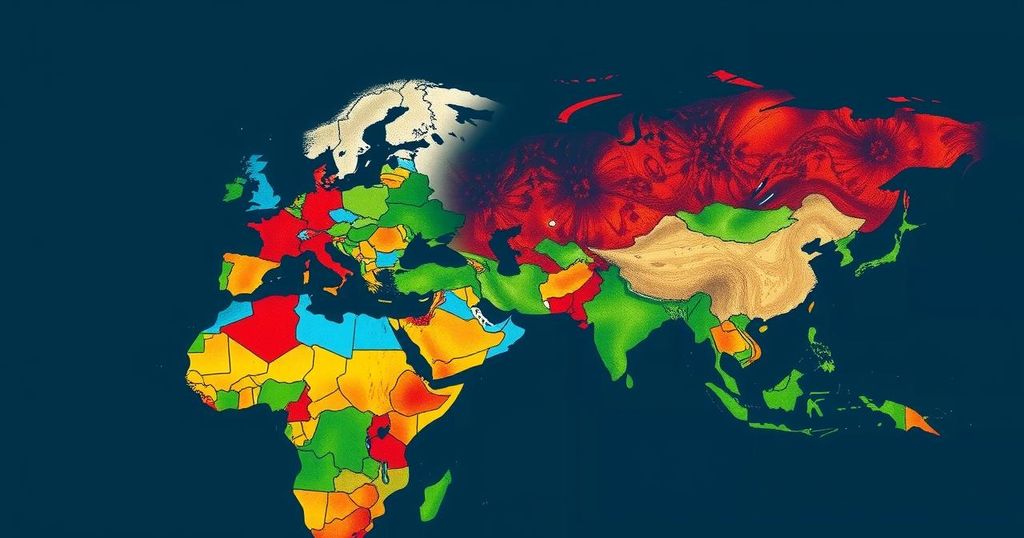International Court Considers Accountability for Climate Change Induced Harm

A significant hearing at the International Court of Justice has commenced, where representatives from vulnerable nations, notably Vanuatu, demanded accountability from a select group of countries for their major contributions to climate change. They argue that these states—responsible for a sizable portion of greenhouse gas emissions—should face legal consequences for the impacts suffered by their countries due to climate change. The proceedings will engage 98 nations, addressing the disparities between the global emissions landscape and the resultant suffering of affected populations.
During a pivotal session at the International Court of Justice (ICJ) in The Hague, representatives from small island states, particularly Vanuatu, argued that several nations should be held accountable for their substantial contributions to the climate crisis. Ralph Regenvanu, Vanuatu’s special envoy, emphasized that a few identifiable countries have produced the majority of greenhouse gas emissions while remaining minimally affected by the resultant climate issues. These vulnerable nations, primarily located in the Pacific, face severe challenges such as rising sea levels and extreme weather events, signaling an urgent need for accountability.
Over the next two weeks, the ICJ will consider inputs from 98 nations, including major historical emitters like the United Kingdom and Russia, as well as countries with minimal emissions that suffer significant climate impact, like Bangladesh, Sudan, and many Pacific islands. Legal counsel Ilan Kiloe highlighted the existential threat that climate change poses to these nations, emphasizing the intertwined nature of climate injustice and the legacy of colonialism.
Additionally, Margaretha Wewerinke-Singh, representing Vanuatu, argued that many states have breached international law by refusing to regulate emissions and failing to meet financial commitments under the UN framework for climate change. Wewerinke-Singh further posited that states causing harm should provide reparations proportionate to their historical contributions.
Cynthia Houniuhi, president of the Pacific Island Students Fighting Climate Change, expressed that the Paris Agreement has been compromised by fossil fuel interests, undermining its initial intent as a hopeful framework. Support has emerged from various organizations invited to comment, as recent advisory opinions from other courts affirm states’ responsibilities regarding greenhouse gases. The ICJ’s process aims not only to hold polluting countries accountable but to clarify legal standards for climate action.
The ongoing discussions at the International Court of Justice mark an essential moment in international climate governance. The hearing underscores a significant legal and moral query regarding the accountability of nations that have historically contributed the most to global greenhouse gas emissions while disproportionately affecting vulnerable states, particularly in the Pacific region. The proceedings reflect years of advocacy by island nations for recognition of their plight in the face of climate-induced existential threats, such as extreme weather and rising sea levels. This case comes in the wake of earlier resolutions passed by the United Nations General Assembly, which have called for advisory opinions on state responsibilities concerning climate change. The hearing involves a large and diverse array of countries, representing various perspectives on climate commitments, highlighting the global stakes involved in achieving climate justice. Moreover, it connects to broader discussions concerning international law, reparations, and the interplay between historical emissions and current responsibilities, as evidenced by cases in other international courts that have sought to address similar issues.
The proceedings at the International Court of Justice represent a critical juncture in the global response to climate change. By holding a select group of nations accountable for their significant emissions, the hearing aims to foster a sense of justice for those most adversely affected by climate impacts. As vulnerable nations seek recognition and reparations, the anticipated outcome may shape future international climate policy and legal frameworks, reinforcing the necessity for collective action and responsibility in safeguarding our planet. The voices of those on the frontlines of climate change are pivotal in urging the international community to acknowledge and address an urgent moral and legal imperative.
Original Source: www.theguardian.com






